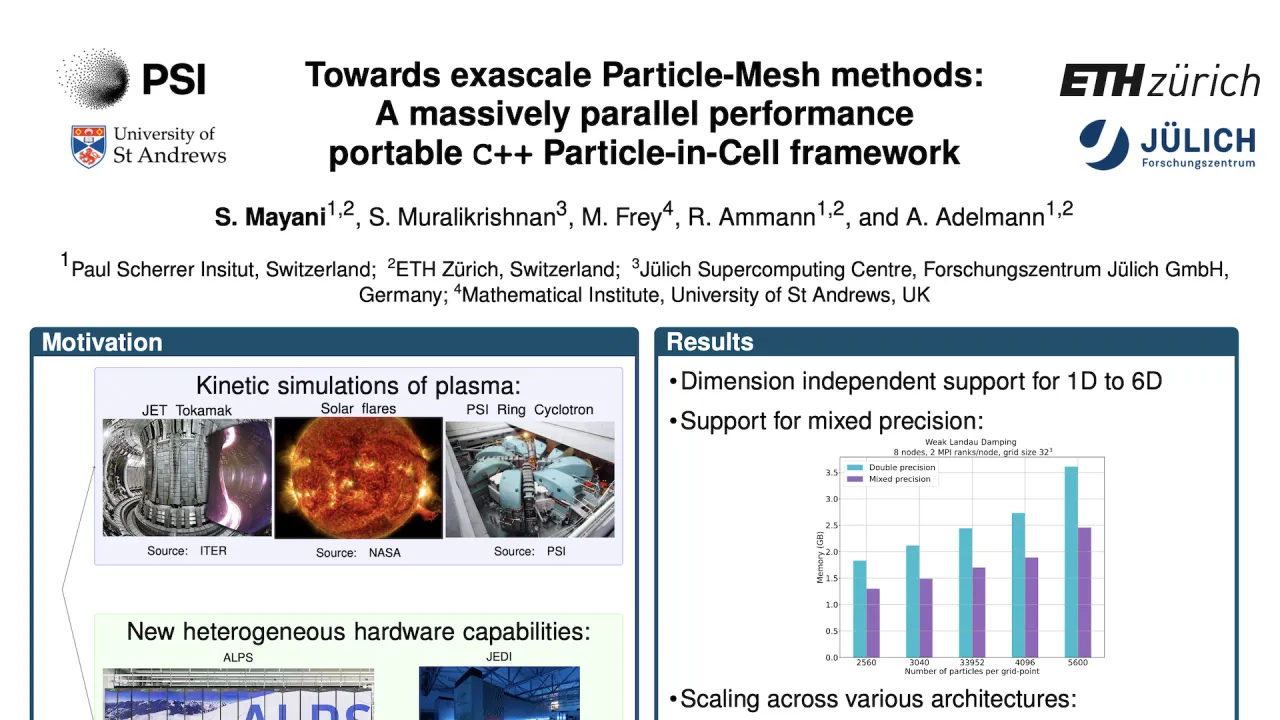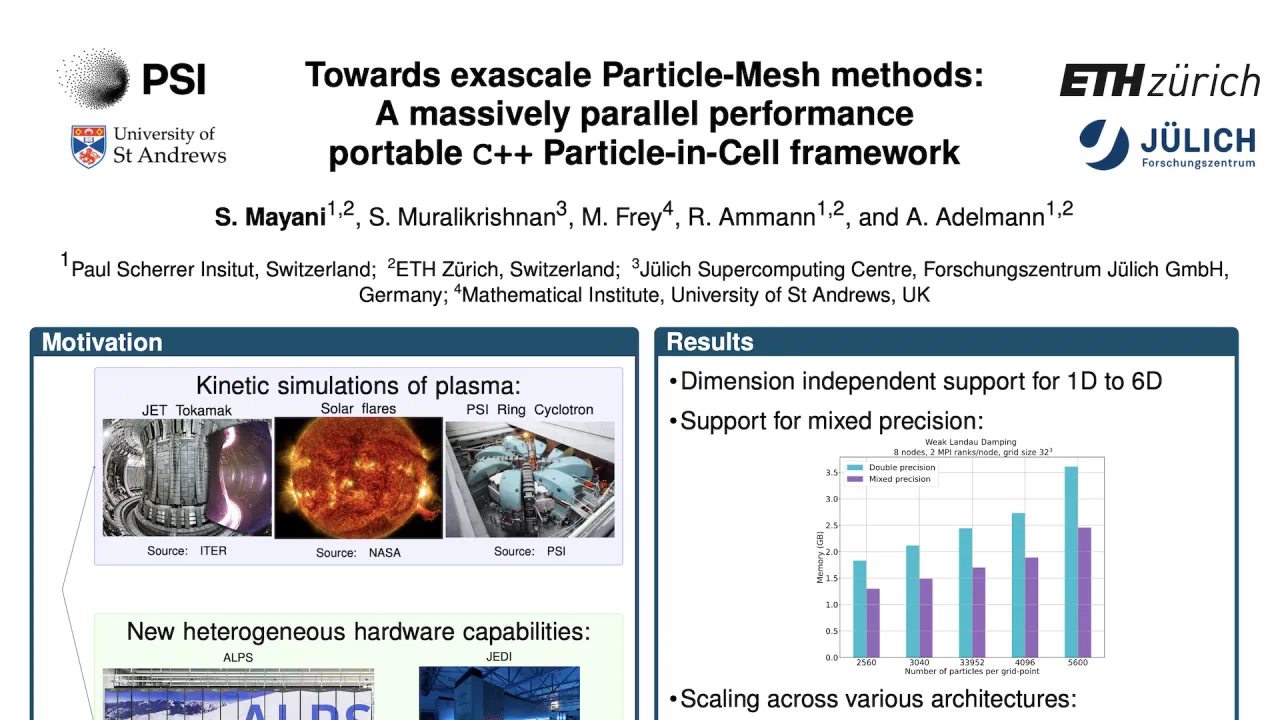

Towards Exascale Particle-Mesh Methods: A Massively Parallel Performance Portable C++ Particle-in-Cell Framework
Tuesday, June 10, 2025 3:00 PM to Thursday, June 12, 2025 4:00 PM · 2 days 1 hr. (Europe/Berlin)
Foyer D-G - 2nd floor
Research Poster
Computational PhysicsExtreme-scale AlgorithmsNovel AlgorithmsNumerical LibrariesOptimizing for Energy and Performance
Information
Poster is on display and will be presented at the poster pitch session.
As computing architectures become increasingly complex and heterogeneous, code portability and performance are coming to the forefront of scientific computing. New machines rely on heterogeneous architectures i.e. traditional CPUs with accelerators such as GPUs from different vendors. For example, looking at the top 10 supercomputers of the TOP500 list as of November 2024, one can already find a multitude of architectures: NVIDIA, AMD and Intel CPUs and GPUs. As such, hardware portability is key such that researchers are able to leverage the increased computing power that these new exascale machines provide. We seek to provide researchers with such a portable and performant code, focused on Particle-Mesh simulations. This is the Independent Parallel Particle Layer (IPPL) library, a C++ open-source code based on Kokkos for hardware abstraction, and MPI for inter-node parallelisation. The IPPL framework is a modular code which contains building blocks such as particles, meshes, interpolation schemes, field solvers (currently only supporting solving the Poisson equation), as well as domain decomposition and load balancing. The library supports one- to six-dimensional simulations, mixed precision, and asynchronous execution across different hardware platforms. Users can write their simulations using the components provided by the framework and automatically gain hardware portability and make use of the performance optimizations implemented in the IPPL core. Additionally, this makes IPPL a valuable platform for testing and developing new algorithms aimed at enhancing the performance of large-scale simulations, particularly in beam and plasma physics research. We present scaling studies of the library on benchmark problems for plasma physics simulations based on the particle-in-cell method, and showcase performance across various architectures, including the new Nvidia Grace Hopper chips (GH200) as well as the Nvidia A100 GPUs. As an example of the versatile nature of the IPPL library, we also showcase a structure formation cosmology mini-application which was implemented within the library.
Contributors:
As computing architectures become increasingly complex and heterogeneous, code portability and performance are coming to the forefront of scientific computing. New machines rely on heterogeneous architectures i.e. traditional CPUs with accelerators such as GPUs from different vendors. For example, looking at the top 10 supercomputers of the TOP500 list as of November 2024, one can already find a multitude of architectures: NVIDIA, AMD and Intel CPUs and GPUs. As such, hardware portability is key such that researchers are able to leverage the increased computing power that these new exascale machines provide. We seek to provide researchers with such a portable and performant code, focused on Particle-Mesh simulations. This is the Independent Parallel Particle Layer (IPPL) library, a C++ open-source code based on Kokkos for hardware abstraction, and MPI for inter-node parallelisation. The IPPL framework is a modular code which contains building blocks such as particles, meshes, interpolation schemes, field solvers (currently only supporting solving the Poisson equation), as well as domain decomposition and load balancing. The library supports one- to six-dimensional simulations, mixed precision, and asynchronous execution across different hardware platforms. Users can write their simulations using the components provided by the framework and automatically gain hardware portability and make use of the performance optimizations implemented in the IPPL core. Additionally, this makes IPPL a valuable platform for testing and developing new algorithms aimed at enhancing the performance of large-scale simulations, particularly in beam and plasma physics research. We present scaling studies of the library on benchmark problems for plasma physics simulations based on the particle-in-cell method, and showcase performance across various architectures, including the new Nvidia Grace Hopper chips (GH200) as well as the Nvidia A100 GPUs. As an example of the versatile nature of the IPPL library, we also showcase a structure formation cosmology mini-application which was implemented within the library.
Contributors:
Format
On DemandOn Site

